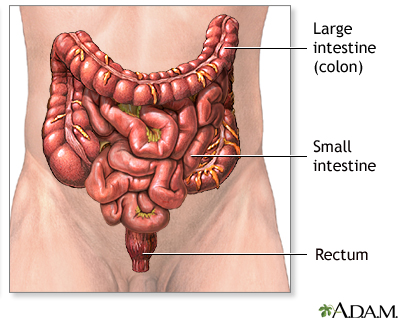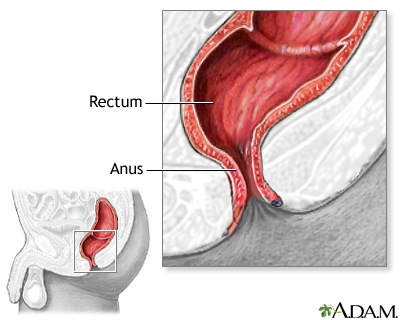Urination - painful
Painful urination is any pain, discomfort, or burning sensation when passing urine.
Painful urination is any pain, discomfort, or burning sensation when passing urine.

Animation

Animation

Animation

Illustration

Presentation

Presentation

Presentation

Presentation

Presentation
Urination - Animation
The urinary system has four main components: the kidneys, ureters, urinary bladder, and urethra. Urine, a liquid waste product, is formed in the kidneys. From there it moves through the ureters and into the bladder, where it is stored. When the bladder gets full, urine is emptied from the body through the urethra in a process called urination. The creation of urine is far more complex than you might think. The kidneys filter waste from the blood that passes through them, and reabsorb substances that the body requires, even though those requirements may change from moment to moment. The outer portion of each of the kidneys is the cortex, while the inner portion is called the medulla. Each of the kidneys is composed of approximately one million subunits called nephrons. Each nephron consists of a microscopic ball of blood vessels called a glomerulus, which is connected to a twisting length of tube called the renal tubule. Because the blood vessels in the glomeruli are porous, they act as filters, removing most of the water, salt, and waste from the blood that passes through them. As filters, the glomeruli have physical properties that prevent large cells, like red blood cells, from passing into the renal tubules. On the other hand, smaller particles, like sugar and salt, can pass easily through the glomerulus. It is in the renal tubule that waste products are passed into the urine. Substances the body needs, like water and salt, are reabsorbed back into the bloodstream at the same time. The path of urine formation, reabsorption, and excretion begins at the glomerulus, continues through the renal tubules, and proceeds to the ureter. For the most part, urine moves from the outer cortex of the kidneys to the inner medullary region. Urine then proceeds down the ureters and into the bladder. Here you can see a cut-section of the bladder. The unique, expandable cells in the wall of the bladder stretch and become thinner as it fills. Finally, urine is excreted through the urethra.
Erection problems - Animation
You're a man and unfortunately, you aren't able to get an erection at all, or, you lose your erection during intercourse before you are ready. What's a man to do? Let's talk about the causes of this condition, and the various ways to make erection problems a thing of the past. Erection problems are pretty common in adult men. Almost all men sometimes have trouble getting or keeping an erection. In many cases, the problem goes away with little or no treatment. In other cases, it can be an ongoing problem. If you have trouble getting or keeping an erection more than 25% of the time, it is a problem. An erection involves your brain, nerves, hormones, and blood vessels. So, anything that interferes with any of these normal functions can lead to problems getting or keeping an erection. Common causes of erection problems include diseases such as diabetes, high blood pressure, heart or thyroid conditions, poor blood flow, depression, or nervous system disorders like multiple sclerosis or Parkinson disease. Medicines can also be a culprit, including those that treat high blood pressure, heart problems, sleeping pills, and antidepressants. Men who have prostate surgery may also have erection problems, but this is often only a short-term problem. For many men, lifestyle changes can help. Cut down on smoking, alcohol, and illegal drug use. Get plenty of rest and take time to relax. Exercise and eat a healthy diet to keep good blood circulation. Talk openly to your partner about sex and your relationship; if you can't do this, counseling can help. If the problem does not go away with lifestyle changes, or if it begins after an injury or prostate surgery, or if you have symptoms like low back pain, or abdominal pain, or a change in urination, you should call your doctor. If erection problems seem to be caused by a medication you are taking, talk to your doctor about that. You may need to lower the dose or change to another drug. But don't change or stop taking any medications without first talking to your doctor. Treatment may depend on the cause of your problem. Your doctor can prescribe many treatments, including medicines you take by mouth, injections into the penis, medicines inserted into the urethra, vacuum devices, surgery, and penis implants. Ask your doctor about the possible side effects and complications of each treatment. Sildenafil (Viagra), vardenafil (Levitra), and tadalafil (Cialis) are popular medications called phosphodiesterase-5 (PDE5) inhibitors. They work, and they work when you are sexually aroused. These drugs can have side effects, which can range from muscle pain and flushing to heart attack. Do not use these drugs with medications such as nitroglycerin. The combination can cause your blood pressure to drop. As you see, there are several ways to treat erectile problems. Talk with your doctor to see what may be the best one for you.
Pregnancy care - Animation
It's always important to take good care of your health, but never more so than when you're pregnant. You're not only caring for your own body, you're also nurturing and growing a new human being. Let's talk about pregnancy care. During the nine or so months of your pregnancy, you'll see a lot of your ob/gyn. In fact, you should visit your doctor once a month during the first seven months of your pregnancy. Then you should see your doctor once every 2 or 3 weeks until your ninth month, and finally every week until you deliver. You might also see your regular doctor, a nurse midwife, or, if you have any complications, a perinatologist who specializes in high-risk pregnancies. That might sound like a lot of visits, but the goal is to keep a close eye on both you and your growing baby. Your doctor will check your baby's heart rate, and measure how quickly you're gaining weight. You'll likely have at least one ultrasound, where you can actually get to see your baby and find out the gender, unless you want it to be a surprise. Throughout your pregnancy, your doctor will monitor you for any health problems, such as high blood pressure or diabetes. At your regular prenatal visits, your doctor can give you advice about what to eat and how much to exercise. You can also ask about all those weird symptoms you've been having, like morning sickness, food cravings, and the constant urge to use the bathroom. There are a few things you need to do while you're pregnant to make sure you and your baby are healthy. First, you have to take 400 micrograms of folic acid every day. Folic acid is especially important right before you get pregnant, and during the first trimester of your pregnancy because it helps your baby's brain and spinal cord form. Taking folic acid can help prevent birth defects like spina bifida. One thing you need to avoid is alcohol. When you're craving a glass of wine or beer, have some sparkling water, grape juice, or ginger ale instead. Alcohol can be very dangerous for your baby. Also don't take any medicines without talking to your doctor first. That includes over-the-counter medicines like aspirin and cold relievers. Caffeine is okay, but only in moderation. Limit yourself to one cup of coffee, instead of your regular two or three. Don't smoke and stay away from anyone who is smoking. Cigarette smoke deprives your baby of oxygen. It can stunt your child's growth, and lead to birth defects such as a cleft lip or palate. If you're pregnant and you haven't seen a doctor yet, now is the time to call. The sooner you get prenatal care, the more likely that your baby will be born healthy. Let your doctor know if you have a condition like diabetes, seizures, or high blood pressure, or if you've been exposed to a sexually transmitted infection, chemicals, or radiation. Get medical help right away during your pregnancy if you have a fever, painful urination, vaginal bleeding, or severe stomach pain. Call if your water breaks, or you're not feeling your baby moving and it's near the end of your pregnancy.